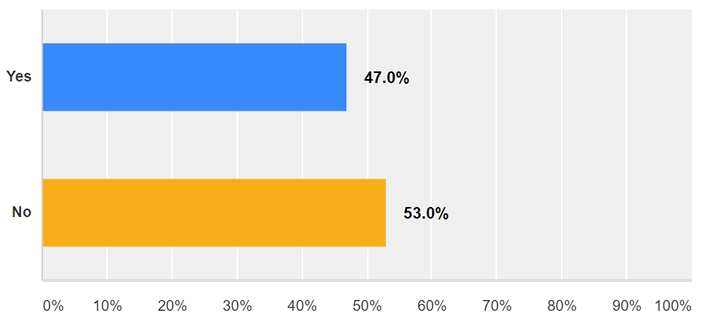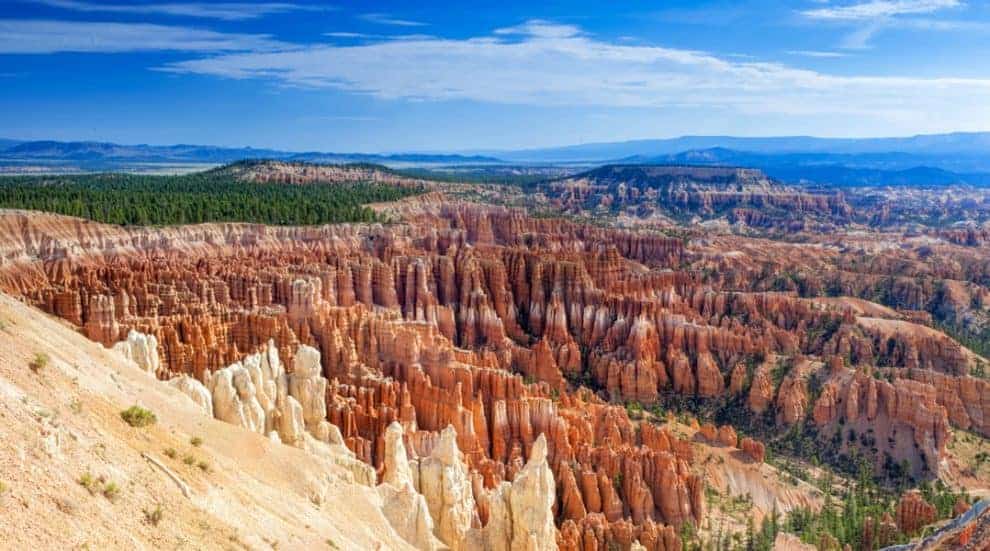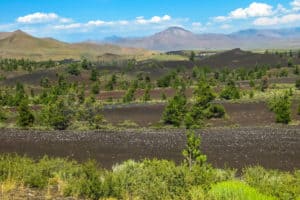The March LANDTHINK Pulse revealed 53% of respondents think the federal government should not be a land owner. Federal control of land has been a long-running and controversial issue, and some go so far as to say it’s downright unconstitutional. The grumbling and rumbling is once again receiving media attention, sparked by the standoff at Malheur National Wildlife Refuge in Oregon last January. Why is government land ownership such a big deal? To help you understand, the US federal government owns an whopping 640 million acres of land. It’s astounding when you think about it; if you were to add up all the acres owned by the federal government, it would equal roughly 28% of the total surface area of the United States. The land owned by the federal government is managed by five separate agencies. Here’s a breakdown of the percentages each agency oversees, provided by information obtained in the Congressional Research Service Report:
- Bureau of Land Management (BLM), manages 247.3 million acres
- Forest Service (FS), manages 192.9 million acres
- Fish and Wildlife Service (FWS) manages 89.1
- National Park Service (NPS) manages 79.6 million acres
- Department of Defense (DOD) administers 14.4 million acres
Last month, the March Pulse asked: Do you think the federal government should own land?
The results of our informal online survey clearly indicated that land ownership by the federal government is a divided issue among our audience. While 53% answered “NO”, 47% said “YES”, the federal government should own land. The vast majority of federally owned land in the West that’s managed by the BLM is leased to ranchers for cattle grazing and mineral rights. Surprisingly, the government leases at a lower rate than most private landowners. Those that responded “NO” to our question might argue, but a quick Google search uncovers that the federal government does indeed have the constitutional right to own property, set forth in the Property Clause in Article IV, Section 3 of the Constitution. Opponents to federal land ownership think ownership should be placed under state control, believing the public would then have a louder voice in how the land was used. Other opponents feel the government has no right to dictate how land is being used. Those answering “YES”, probably agree with Congress, that placing land ownership in the hands of the state would create a huge administrative burden on states and end up costing the government million of dollars each year.
The largest percentage of the federal government’s land holdings are in states located in the West. Nevada has the honor of being the western state with the largest percentage of federally owned land, followed closely by Utah and Idaho. Oregon, the state in which the armed occupation of the Malheur National Wildlife Refuge occurred and put the focus once again on federal land ownership, ranked fifth on the list.
Here are the final results:

- 53.0% said NO the federal government SHOULD NOT own land
- 47.0% said YES the federal government SHOULD own land
Thank you to everyone who participated and shared the Pulse with friends and connections in the land industry. It was interesting to read each of your comments left on our LANDTHINK Facebook page in response to our Pulse question!
LANDTHINK is seeking sponsors for the May LANDTHINK Pulse and months thereafter. Sponsorship of the Pulse is an excellent opportunity for land industry businesses and professionals to receive significant exposure by leveraging our entire network of web and social media sites. Pulse sponsorships are offered on a first come first serve basis and are subject to certain limitations. If your business would be interested in sponsoring next month’s May Pulse question, please contact us soon.
Do you have a suggestion for next month’s Pulse question? Submit your question here and we might choose yours!
Should golf courses be eligible for conservation easement tax deductions? Tell us what you think! Click here to answer the April Pulse question.
This content may not be used or reproduced in any manner whatsoever, in part or in whole, without written permission of LANDTHINK. Use of this content without permission is a violation of federal copyright law. The articles, posts, comments, opinions and information provided by LANDTHINK are for informational and research purposes only and DOES NOT substitute or coincide with the advice of an attorney, accountant, real estate broker or any other licensed real estate professional. LANDTHINK strongly advises visitors and readers to seek their own professional guidance and advice related to buying, investing in or selling real estate.








Yeah, let’s give away or sell all federal lands so that there are no more lands that we all can use and cherish. Let wealthy people and corporations snap it up and keep it or resell it at astronomical prices. Or let’s open the gates of all the country’s protected icon and natural areas and let Bubba and his millions of buddies destroy the little scenery we’ve managed to save and protect which was set aside for us all to use and enjoy. The idiot protestors at the USF&WS refuge up in Oregon were getting ready to turn waterfowl habitat into plowed fields if memory serves. Most federal lands started being set aside for protection beginning in the very early 1900s as an alarmed response by private citizens to the wild-scale logging, market hunting, and general use-it-up philosophy that was prevalent at the time. We’ve got a great thing going and we all have access to millions upon millions of acres of federal lands for hunting, fishing, ATVing, swimming, hiking, exploring and even leasing back lands for logging, grazing and mining – don’t destroy it just because a few people chafe at logical federal management policies that limit use at certain critical times of the year. The land management agencies of the federal government are largely staffed by dedicated, professional employees who believe in what they are doing. Sure, the government is so big and at times uncoordinated that it sometimes oversteps and over-reaches but there are measures to eventually correct those things.